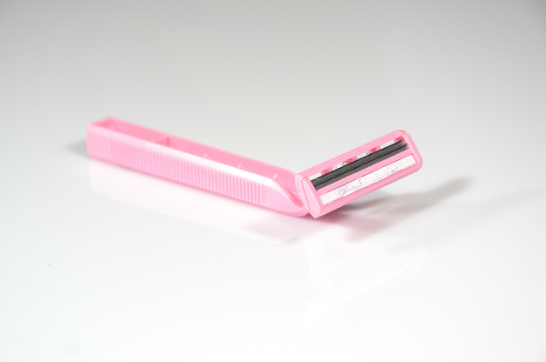If you're preparing for laser hair removal and are wondering whether it’s okay to skip shaving, it’s crucial to understand the impact it can have on the treatment. Shaving before your session is essential for achieving the best results and ensuring a safe, effective treatment. But what exactly happens if you don’t shave? Let’s explore!
1. The Laser May Not Work as Effectively
How laser hair removal works:
Laser hair removal targets the hair follicle below the surface of the skin, using light energy that’s absorbed by the pigment (melanin) in the hair. This heat energy damages the follicle, which inhibits future hair growth.
Without shaving:
If you don’t shave before your appointment, the laser’s energy will target the hair above the skin instead of focusing on the follicle. When there’s too much hair above the skin, the laser energy can get absorbed by the hair shaft, which scatters the light. This means less energy reaches the follicle, and the treatment becomes less effective.
Result?
You may need more sessions, or your results may not be as permanent. Shaving ensures that the laser can directly target the hair follicle for the best possible outcome.
2. Increased Risk of Skin Irritation
Hair above the skin can cause issues:
If you don’t shave, the laser will be interacting with longer hair on the surface, which can absorb too much energy. This can result in skin irritation, and redness. The heat from the laser might be absorbed by the exposed hair, rather than being focused on the follicle, causing an unnecessary buildup of energy that can damage your skin.
Avoiding this risk:
Shaving ensures that the laser energy is concentrated where it needs to be—at the hair follicle. It helps prevent skin irritation, burns, and uncomfortable side effects during and after the treatment.
3. Stubble Can Block the Laser’s Penetration
Short hair doesn’t work well either:
If you skip shaving and show up with stubbly hair, the laser will be less efficient. The short hair will block the laser’s energy from reaching the follicle properly. The energy may scatter and not reach the depth it needs to effectively target the hair follicle. As a result, the laser will have a harder time doing its job.
Shaving ensures optimal hair length:
For the most effective laser treatment, hair should be around 1–2 mm long. This allows the laser to penetrate properly, while not being too long to interfere with the treatment.
4. Potentially Longer Sessions
When you don’t shave before your laser hair removal appointment, the technician may need to spend extra time removing the hair manually before starting the treatment. This can add time to your session, making it longer than necessary.
Skipping shaving = more time in the chair
5. Less Precise Results
Laser hair removal is about precision:
The precision of the laser is one of its main benefits. It’s designed to target hair follicles specifically. If the hair is too long or thick, it can scatter the laser’s energy, reducing the precision needed for a successful treatment.
Without shaving:
Your technician may need to adjust the laser settings to try and work around the longer hair, which can lead to uneven results. Proper shaving ensures the treatment is as precise and targeted as possible, leading to smoother, more consistent results.
What’s the Best Way to Prepare for Your Laser Appointment?
If you want to ensure your laser hair removal appointment goes smoothly, here's the right way to prepare:
-
Shave 24-48 hours before your appointment: This allows the hair to grow to the optimal length (about 1–2 mm) for the best results.
-
Avoid waxing or tweezing: Waxing and tweezing remove the hair from the root, and the laser can only target hair that’s still in the follicle. Shaving does not remove the root, so the laser can still work on it.
-
Hydrate your skin: Keep your skin moisturized leading up to the session, as well-hydrated skin can handle the treatment better and reduce the risk of irritation.
By doing this, you help ensure that your laser hair removal session is quick, precise, and effective, leading to smooth, long-lasting results!
